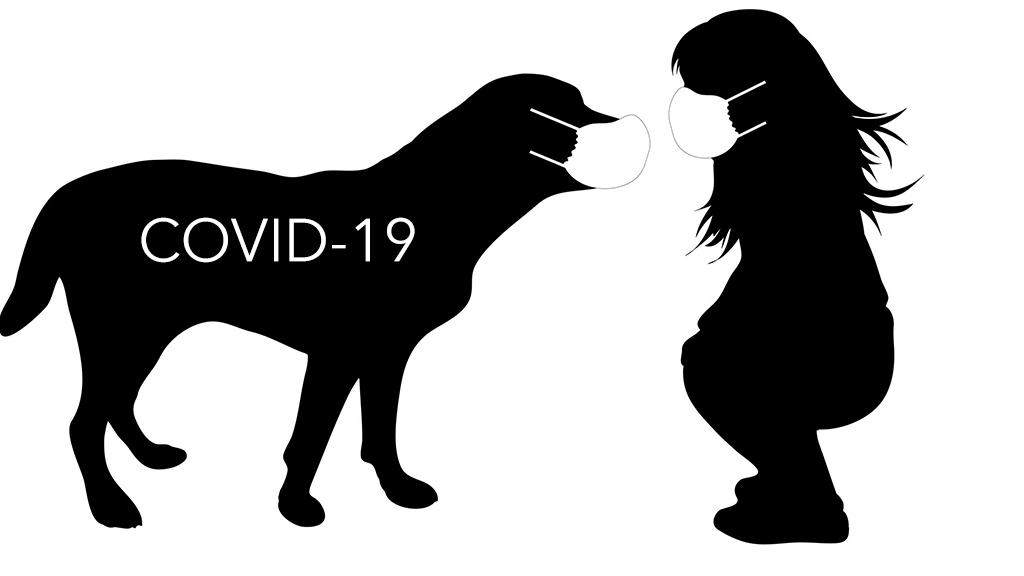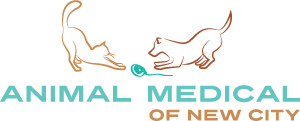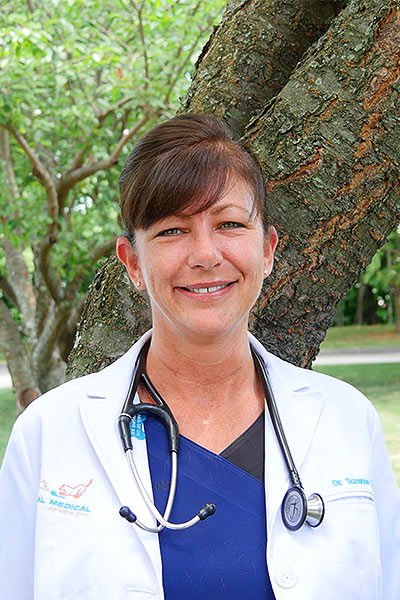
After a dog in Hong Kong tested positive for the corona virus, COVID-19, we’ve had several questions about pets as a possible source of infection. Here are the facts, as we know them.
Free Phone Consultation!
Need to talk to you one of our veterinary professionals?
Animal Medical offers FREE 10 minute phone consultations and answers your pet health questions!
Is It True That A Dog Tested Positive For The Corona Virus, COVID-19?
Yes. The dog, a Pomeranian, is owned by a woman who fell ill with the virus and who was hospitalized. Healthcare officials tested swabs of the dog’s nose and mouth for signs of COVID-19 and the results were a weak positive. Leading health officials stressed that it was extremely unlikely that the dog could serve as a source of infection to others, but the dog was still quarantined.
Can My Dog Transmit COVID-19 To Me If He Encounters A Person Infected With The Virus?
The Center For Disease Control has issued guidelines for how pet owners should interact with their pets if they believe that they are sick with the virus or if their pet is exposed to others who have the virus. These are precautionary directives because there is still not enough information about the COVID-19 virus. However, every leading healthcare organization has stressed that risk of transmission from a dog or a cat is extremely low. If transmission were to occur, it is most likely that the pet would carry the virus from one part of the environment to another. An extreme example might be that a sick individual coughs into his or her hand, pets an animal, and then another healthy individual touches the same part of animal, and then somehow gets the virus from his or her hand into an eye, nose, or mouth. Please remember that this is an extreme example and that there is only one documented case in the world of a pet that has tested positive for COVID-19.
I Heard That There is A Dog Vaccine For The Corona Virus. Is This True?
The vaccine that you have read about is for another corona virus, not COVID-19. There are hundreds of corona viruses that routinely infect all kinds of animals including people, dogs, cats, birds, and pocket pets. They typically cause diarrhea and other mild-to-moderate symptoms. In very rare instances, they can be transmitted from one species to another. Animal Medical no longer vaccinates dogs for corona virus. We don’t believe the risks of infection warrant vaccination. To emphasize, the corona vaccine that your pet may have received in the past does NOT protect against COVID-19. It is very unlikely that dogs or cats can become infected with COVID-19.
What Do Veterinarians Recommend That Pet Owners Do During The COVID-19 Outbreak?
There is no evidence that dogs or cats can transmit COVID-19 to humans, or that humans can transmit the virus to their pets. Still, the CDC recommends that pet owners who are infected with COVID-19, restrict contact with their pet if they believe they are infected. According to the CDC:
“You should restrict contact with pets and other animals while you are sick with COVID-19, just like you would around other people. Although there have not been reports of pets or other animals becoming sick with COVID-19, it is still recommended that people sick with COVID-19 limit contact with animals until more information is known about the virus. When possible, have another member of your household care for your animals while you are sick. If you are sick with COVID-19, avoid contact with your pet, including petting, snuggling, being kissed or licked, and sharing food. If you must care for your pet or be around animals while you are sick, wash your hands before and after you interact with pets and wear a facemask.”
The CDC makes this recommendation because it is still concerned that pets can act like a living fomite, or carrier of the disease on its skin, fur, nose, or paws, without actually being sick with the disease. Interestingly, fomites are a big source of infection from one patient to another in hospitals and one of the reasons why hospitals have strict guidelines when passing from one part of the hospital into an isolation ward. At Animal Medical, our staff members must don masks, gloves, aprons, and special shoe covers before entering isolation, and then leave all these protective clothing pieces in the isolation ward before treading across a disinfectant barrier and reentering the main hospital. Currently there are no patients in our isolation ward or disease outbreaks in our area that warrant isolation.
What Should I Do If I Believe My Pet Has COVID-19?
If you believe that your pet has COVID-19, call us 845-638-3600. We can provide you with a free,10-minute consultation and give you guidance on what you should do. If you believe that you have COVID-19 or have recently been diagnosed with COVID-19, call your medical doctor for instructions on how to act.
Is It Okay To Travel With My Pet To Parts Of The World Where There Is An Outbreak?
Pets traveling domestically or internationally have to meet certain requirements established by the Department of Agriculture. There are no additional requirements that we recommend for your pet during the outbreak of COVID-19.
Should I Get A Face Mask For My Dog?
No. Regular face masks don’t work to prevent infection of COVID-19 in people and they certainly won’t work with your dog (or cat). At best, regular face masks limit transmission from sick individuals to healthy ones.
Should I Stockpile Pet Care Essentials In The Event of An Outbreak?
It may be a good idea to buy at least 2-4 week’s worth of dog or cat food, cat litter, and other essential pet supplies provided you can keep the items free from spoilage and responsibly stored. There may be disruptions in supply chains or travel restrictions during an outbreak that prevent you from getting your pet’s supplies as you are used to. Additionally, if you fall ill, you will want to restrict your own travel to keep others safe.
Can I Get COVID-19 From My Backyard Chickens?
Every year more of our Rockland County clients choose to have backyard flocks of chickens and we’re happy to help you out with your veterinary needs! A few of you have called to ask us if you chickens are at risk of contracting or transmitting COVID-19. So far, veterinarians do not believe there is risk of becoming infected with COVID-19 from your chickens, nor do they believe that humans can infect chickens. However, we advise you to limit the handling of your chickens or their eggs if you become infected with COVID-19 so that you don’t inadvertently pass the virus onto other family members that may touch an egg or a chicken after you have handled one.
What Should I Do If My Pet Needs Veterinary Care, But There Is A Corona Outbreak?
Animal Medical of New City has already planned for what to do in the event of staff shortages or restrictions on travel if there is a COVID-19 outbreak in our area. Here’s what to expect:
Animal Medical will not compromise care
In the event of staff shortages due to school and daycare closures or travel restrictions, we will reschedule all non-urgent care (annual visits, nail trims, etc.) as needed to accommodate for pets that require same-day care.
Animal Medical will provide existing clients access to virtual care.
In the event that we have examined your pet within the last year and you are unable to travel to Animal Medical because of COVID-19-related issues, we may be able to examine your pet virtually using a live video feed, pictures, or just a phone conversation. Please be aware that the ability of us to deliver this service depends on several factors including the nature of your pet’s symptoms, the seriousness of the situation, and our staffing.
Animal Medical Will Be Here For You
A local outbreak is likely to be disruptive for one or two months. Beyond that point, most people will have either been exposed or sickened with the virus and on their road to recovery. Animal Medical has been a healthcare provider for the pet owners of Rockland County for 30 years. It will take more than COVID-19 to break our track record!
Additional Resources For Pet Owners
- The Royal College of London Veterinary School: Updated page on the possibility of dogs and cats becoming infected with CORVID-19
- The American Veterinary Medical Association: America’s leading authority on veterinary care has released a statement on transmission and infection.
- The World Small Animal Veterinary Association: One of the world’s biggest veterinary associations also discusses CORVID-19 and pets.
- The Center for Disease Control: Our nation’s top healthcare advisors have built a comprehensive resource for people and pet owners. Includes FAQs.



